About the Conference
After years of debate about the necessity to modify the Polish Act on the Procedure in Juvenile Cases of 26 October 1982, the Act on Support and Resocialization of Juveniles [Ustawa o wspieraniu i resocjalizacji nieletnich] was put into effect on September 1, 2022. The new law mandates that juvenile offenders who have committed serious crimes are sent to correctional facilities. Additionally, the law sets the minimum age of responsibility for behavior that violates the law or shows signs of demoralization at 10 years old. It also permits school principals to assign students who have committed minor offenses to do school cleanup work.
The international scientific conference "Challenges and Approaches in Legal Proceedings Concerning Juveniles," organized by the Faculty of Law in Warsaw and the Institute of Law at SWPS University, will offer an opportunity to discuss the new legal solutions six months after their implementation.
Two expert panels, one held in Polish and the other in English, will provide insights into current developments in the Polish legal system and comparative legal approaches to working with juveniles.
Whether you are a legal practitioner, researcher, policymaker, or simply someone interested in this topic, we invite you to join us for this informative event. The conference will be held in a hybrid format, allowing you to participate either in person or virtually from anywhere in the world.
Speakers
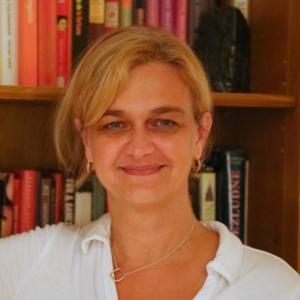
Katarzyna Celińska
Professor
Is a sociologist and lawyer. She is an Associate Professor and a member of the Doctoral Program in Criminal Justice at the City University of New York (CUNY). Her research interests include criminology, criminal policy and criminal justice.
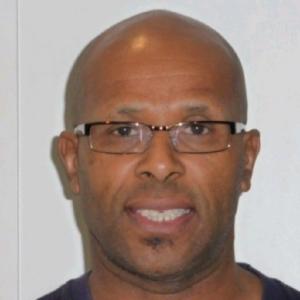
Robert Cotterel
Robert Cotterel has devoted the past 35 years of his life to community development and the public sector. His work has included volunteering and professional roles in various areas, such as youth and community service, education, mentoring, and probation-risk assessment, planning, and management. In addition, he serves as the Chairman of the local charity SADACCA.
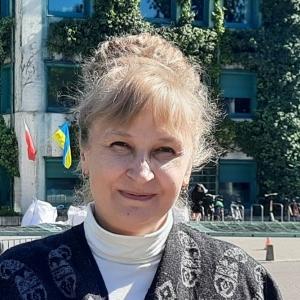
Liudmyla Dubchak
Ph.D.
Is a scholarship holder of the Ukrainian academics program financed by the Henryk Wujec Civic Fund established by the Foundation for Poland (Fundacja dla Polski). She is currently engaged in academic and research activities at SWPS University’s Faculty of Law in Warsaw. Previously, she was an Associate Professor at the Department of Parliamentarism and Political Management of the National Academy of Public Administration under the President of Ukraine and at the Department of Regional Policy at Taras Shevchenko National University of Kyiv. She was also a lecturer at the National Academy of Internal Affairs in Kyiv. Additionally, she served as the deputy director of the Ukrainian Association of District and Regional Councils. Her research interests are focused on criminal policy in Ukraine and Poland, including issues related to the organizational and legal aspects of criminal policy, the principles of developing penitentiary systems and training prison service specialists, as well as the state policy of Ukraine and Poland in dealing with juveniles.

Przemysław Frąckowiak
Ph.D.
Is the head of the Department of Forensic Science with Criminology at Stanislaw Staszic State University of Applied Sciences in Piła. He has thirty years of professional experience in justice institutions, working in the fields of prevention, rehabilitation, and social readaptation of juveniles. He is a doctor honoris causa of the International Economics and Humanities University in Rivnee, Ukraine and a member of the Prof. Stanislaw Batawia Polish Society of Criminology. He has headed the District Pedagogical Supervision Team at the District Court in Poznań. Currently, he works as a teacher in a juvenile detention center, where he combines theory and practice. He has authored and co-authored numerous publications and expert opinions on the functioning of juvenile detention centers, youth shelters, and family diagnostic and consultation centers. His scientific interests include the effectiveness of the process of rehabilitating youth, systems of social prevention and resocialization, social capital in the context of preventive and resocialization interventions, and the determinants of juvenile delinquency.
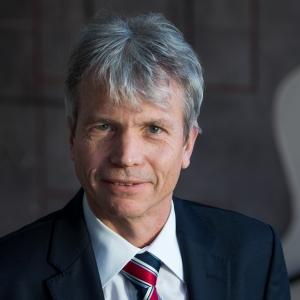
Arthur Hartmann
Professor
Is a professor at the Bremen University of Public Administration. He is an experienced researcher and author of numerous scientific publications. His research interests focus on the German imprisonment system, victim rights, the role of mediation in criminal proceedings, and the correlation between crime and migration.
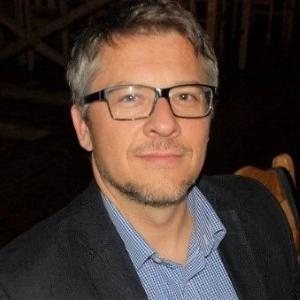
Michał Szykut
Ph.D.
Is an Assistant Professor and associate in the Department of Forensic Science with Criminology at Stanislaw Staszic State University of Applied Sciences in Piła. Before joining his current position he was a long-time lecturer at the Nicolaus Copernicus University in Toruń. He has participated in foreign internships in South Yorkshire Probation Area (Sheffield, United Kingdom) and Harrys County Community and Correction Department (Houston, United States). His research interests include probation comparative studies with a focus on Anglo-Saxon systems and concepts of community involvement in executing court decisions. He authored numerous publications on the functioning of probation systems in Poland and around the world. He was the lead researcher in an international research project "Creating a probation system in Poland and Great Britain – pedagogical and social problems" (2007–2010), conducted in collaboration with the Association of Black Probation Officers from Great Britain. He is currently preparing for another international research project on working with sex offenders in the probation system.

Katarzyna Witkowska-Rozpara
Ph.D. / Associate Professor
Is an Assistant Professor at the Department of Criminology and Criminal Policy and head of the Center for Criminological Analysis at the University of Warsaw. She is also a member of the European Society of Criminology (ESC) and the Prof. S. Batavia Polish Society of Criminology. She is an author and co-author of numerous scientific publications. Her research interests include criminal policy, media-crime-criminal policy interaction, and criminological forecasting (including in the context of probationary measures). She also conducts research on crime and crime response in the Arctic and investigates the victimization of indigenous peoples in the polar regions.

Dagmara Woźniakowska-Fajst
Ph.D. / Associate Professor
Is a criminologist. She serves as the head of the Department of Criminology and Criminal Policy at the University of Warsaw. She is also an Assistant Professor at the Department of Criminology at the Institute of Legal Sciences of the Polish Academy of Sciences and holds the position of President of the Board of the Prof. S. Batavia Polish Society of Criminology. Her research focuses on victimology, emotional harassment, deviant behavior among minors and women, media representation of crime, and the treatment of foreigners in the criminal justice system.
Organizers
Location
Faculty of Law in Warsaw, SWPS University, Chodakowska 19/31, room S305 and online